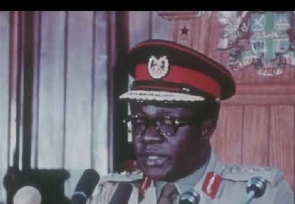It is a mystery, or some sort of unspoken disbelief as to how in 1978, during a referendum proposed by the Supreme Military Council (SMC) for a Union Government (UNIGOV), the leader at the time, General Ignatius Kutu Acheampong, did something that turned the votes in his favour, overnight.
Feeling that the Electoral Commissioner at the time, Justice I. K. Abban, would try to obstruct his plans for a UNIGOV, especially after he tried to challenge his directive on the day of election for all polling boxes to be taken to regional centers for counting, rather than being counted at individual polling stations, Acheampong sacked him.
Abban knew this directive by Acheampong would allow for tampering with the vote but that got the SMC leader rattled and so he got him (Abban) off the job.
Besides, many projections had already been indicating that the SMC was going to lose the vote.
Abban eventually went into hiding, but something very miraculously happened overnight after that sack.
According to details on eaumf.org, during the time of the sacked EC boss, initial results started reflecting the projections that had come before the elections: UNIGOV was being defeated.
But the next day, when a new Electoral Commissioner took office, it was he announced that UNIGOV had won the referendum with 55.6 percent of the vote.
Having gotten what he wanted, Acheampong sensed that he could receive some opposition from his opponents, and so on April 3, 1978, he quickly banned The Association of Recognised Professional Bodies (ARPB), the Ghana Association of University Teachers (GAUT) and the National Union of Ghana Students (NUGS).
The above organisations were among those who were strongly fighting against the Union Government.
Background
In July 1977, there was a decision to call a national referendum as a result of the pressures brought to bear on the SMC after there was widespread dissatisfaction with the management of the economy.
This, according to a jstor.com literature titled, “Politics in a ‘non-political’ system: The March 30, 1978 Referendum in Ghana,” was also coupled with indications that the military intended to remain in power for an “indeterminate period.”
Such fears led to students embarking on strikes, culminating in the June 23, 1977, demand by the Association of Recognized Professional Bodies (ARPB) on the government to immediately resign.
You can also watch this episode of People & Places on GhanaWeb TV here:
AE/SARA
General News of Saturday, 25 March 2023
Source: www.ghanaweb.com













